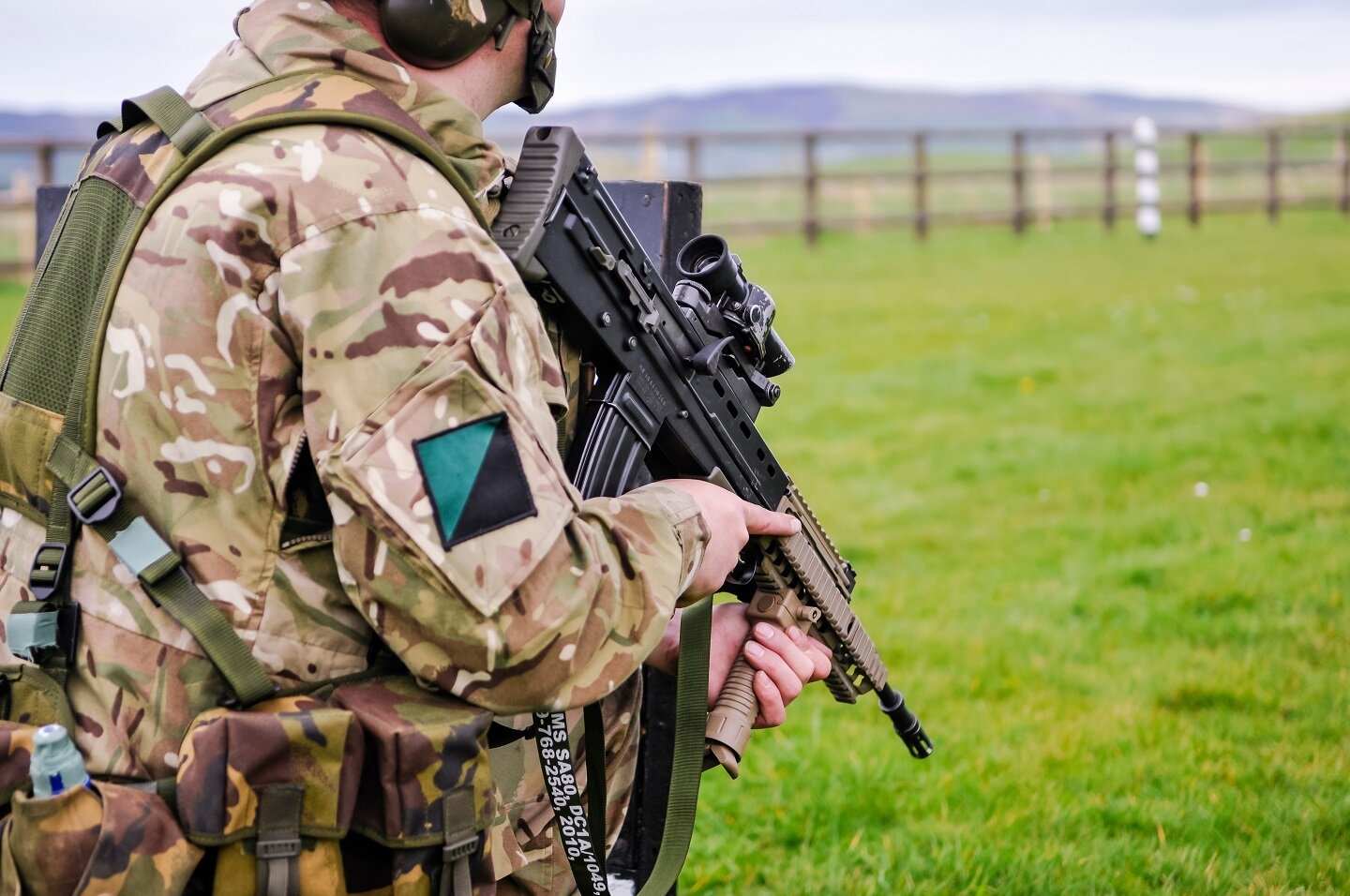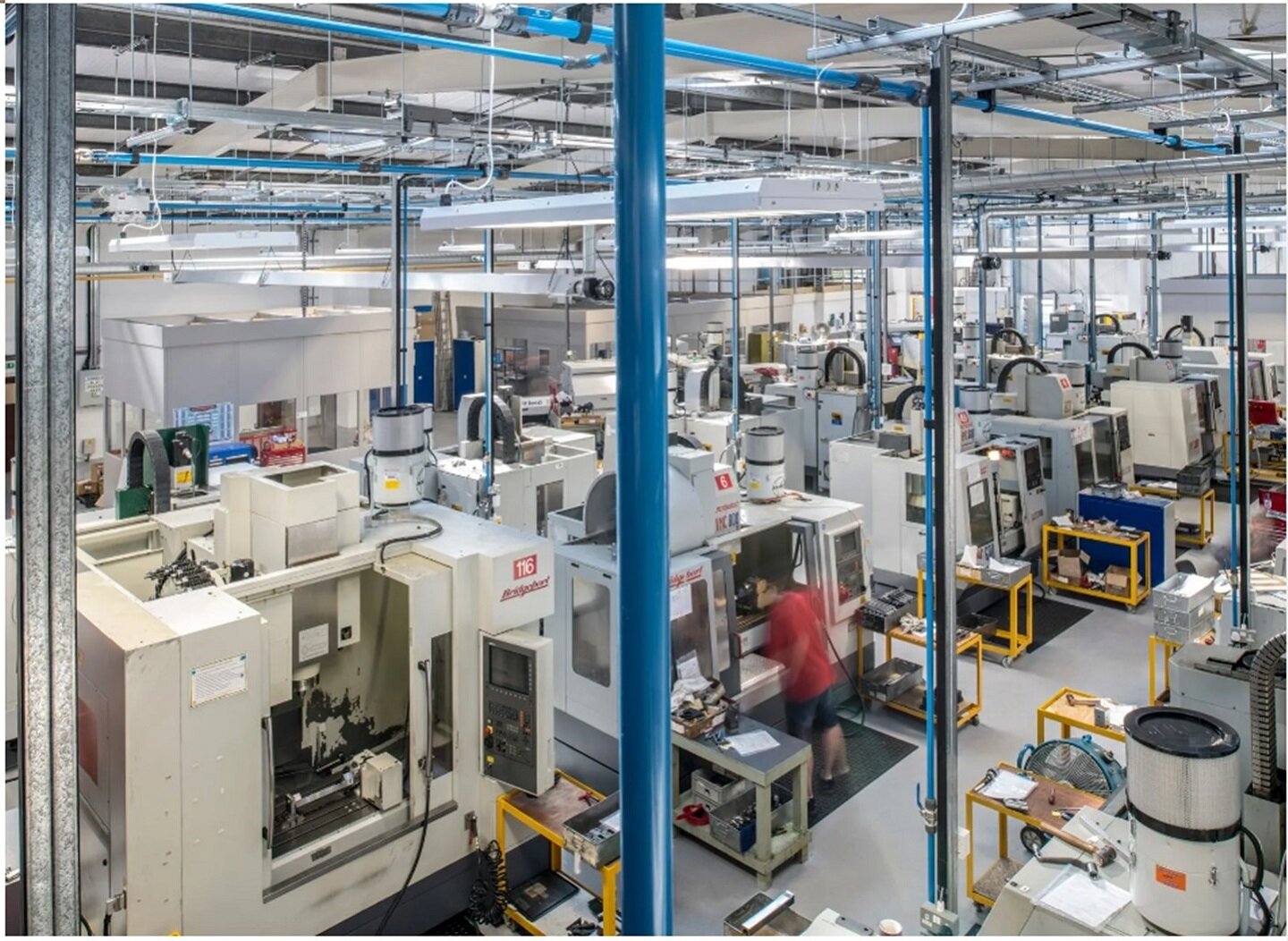Interview
Q&A: Sig Sauer targets UK growth
Manufacturing partnerships and local adaptation drive Sig Sauer’s UK ambitions. Harry McNeil reports.

Sig Sauer produces a range of products, including ammunition, firearms, optics, and suppressors. Credit: Sig Sauer
Dr Duncan Stewart, director of Sig Sauer UK, shares insights into the company’s manufacturing plans and market adaptation with an ambition to make inroads into the country’s firearms sector, with an eye on defence contracts.
As Sig Sauer UK celebrates its first year of operations after being established in August 2023, Stewart revealed the company is leveraging partnerships, innovation, and a long-term vision to become a key player in the UK’s defence sector. Among this include the landmark Project Grayburn, as the UK military looks to secure a next generation battle rifle.
Harry McNeil: Dr. Stewart, thank you for your time. Could you elaborate on the decision behind forming Sig Sauer UK and what the company aims to achieve?
Dr. Duncan Stewart: The decision to establish Sig Sauer UK was made about 18 months ago. We have a unique, collaborative relationship with the UK and other Nato end users, typically elite forces across defence and law enforcement sectors, particularly SOF (Special Operations Forces).
Several products have been developed in response to bespoke UK requirements, which is unusual for such a relatively small market and firearms end user. Additionally, there are large defence programmes coming up, like the Grayburn programme, which is the SA80 replacement programme that has been in the works for years. These factors contributed to the decision to move away from a traditional distributor model and set up a direct presence in the UK.
We’ve partnered with Accuracy International, the only UK sovereign small arms manufacturer, to build our phase-one operating model. We’ve signed a two-year agreement to work from their facility in Portsmouth, leveraging their logistics and supply infrastructure. Our aim is to become a fully independent operation by 2026.
Harry McNeil: How does the Accuracy International partnership help your UK supply chain?
Dr. Duncan Stewart: By setting up in the UK, we can better support our current customers with direct communication and offer better value for money for better-class products. It also allows us to build a more resilient UK-based supply chain. This has become especially important due to heightened awareness around the risks of extended supply lines, accelerated by global events like Russia’s invasion of Ukraine.

A member of the British Army undergoes training at a military firing range using an SA80 L85A2 rifle. Credit: Stephen Barnes / Shutterstock
"Several products have been developed in response to bespoke UK requirements, which is unusual for such a relatively small market and firearms end user."
Partnering with Accuracy International allows us to create jobs and establish a maintenance and supply facility in the UK to support these needs. It also paves the way for potential sovereign manufacturing down the line.
Harry McNeil: How does the UK market differ from the other markets where Sig Sauer operates, and how are you tailoring your approach specifically for the UK?
Dr. Duncan Stewart: The UK has some of the strictest gun laws in the world, and I fully support a highly regulated firearms industry. The US, by contrast, is the home of firearms innovation, largely due to its scale — the US sells more firearms domestically than the rest of the world combined. This drives a lot of the innovation and development that we see.
In terms of the UK, many of our products fall under Section 5 of UK firearms law, which prohibits civilian use, making the regulatory environment quite complex. Add Brexit into the mix, and that creates additional challenges with export and import regulations. Our current operating model with Accuracy International has been crucial to navigating these complexities and tailoring our approach. We’re also maintaining a service element to support our existing customers in law enforcement and defence with sustainability and maintenance of their existing firearms.
Harry McNeil: Sig Sauer has positioned itself by controlling the entire system, from ammunition to firearms. Could you expand on this aspect?
Dr. Duncan Stewart: One of our key differentiators is that we manufacture everything—from ammunition to firearms and even optics and suppressors. This is a significant advantage for our customers as we can provide a complete, integrated system from one company.
Our competitors often have to partner with other companies to offer the same range. This positions us to offer a highly integrated solution, which is especially important in markets like the UK, where the procurement process is complex and demands long-term, sustainable solutions.
Harry McNeil: You mentioned the Grayburn programme earlier. Could you expand on some exciting opportunities Sig Sauer UK sees in the coming years?
Dr. Duncan Stewart: The Grayburn programme is a big one. It’s the SA80 replacement and will be a once-in-a-generation opportunity for small arms manufacturers. The SA80 was introduced in 1985, and we’re now looking at replacing 40-year-old technology. The new system will be based on more modern requirements, such as the ability to fire newer, more powerful rounds.
The Grayburn programme is a big one. It’s the SA80 replacement and will be a once-in-a-generation opportunity for small arms manufacturers.
James Marques, defence analyst at GlobalData
Additionally, there are machine gun replacement programmes on the horizon, such as replacing the GPMG and the heavy machine gun. Our 338 lightweight medium machine gun is gaining a lot of interest because it bridges the gap between medium and heavy capabilities while still being portable.
We also have opportunities in the law enforcement sector. For instance, the UK’s Counter Terrorist Police Network was an early adopter of our MCX rifles, and we expect more tenders in this area.

Accuracy International’s headquarters are located in Portsmouth, UK. Sig Sauer UK has signed a two-year agreement to work from the facility. Credit: Accuracy International
Harry McNeil: Can you discuss the Next Generation Squad Weapon (NGSW) programme in the US and how it relates to Sig Sauer’s UK ambitions?
Dr. Duncan Stewart: The NGSW programme is huge. Sig won the US Army’s contract to replace their rifle and light machine gun in 2022, a $4.7bn programme. What’s remarkable is that Sig fully funded the R&D for this project internally — two years of profits were reinvested into the development of the ammunition and weapon systems. An example of this was the SIG Hybrid Cartridge, which delivers 25% higher muzzle pressure and velocity, making it more accurate with less drop.
Harry McNeil: With this growth, are there plans for workforce expansion or new facilities in the UK?
Dr. Duncan Stewart: Yes, absolutely. Currently, we have a small team of four people in the UK, but we’ll be steadily expanding. Over the next 18 months, we’ll also be developing our facility at Accuracy International into a more streamlined logistics operation. By 2026, we aim to have our own independent footprint focused on logistics and maintenance.
Regarding manufacturing in the UK, it’s possible, and we’ve done it in places like Israel and Mexico, but it depends on demand. Large-scale manufacturing in the UK would likely follow if we secure major contracts like Grayburn.
Harry McNeil: Finally, what are some key challenges you foresee in establishing and growing Sig Sauer UK, and how do you plan to overcome them?
Dr. Duncan Stewart: One of the main challenges is the cultural differences between working with US headquarters and UK customers. Despite the common language, there’s a significant difference in work and customer culture, and my job involves translating and adapting our US-based offering for the UK market.
Another challenge is logistics management. We’re building a system that can support a variety of government customers with diverse needs, which takes time.
Caption. Credit:

Phillip Day. Credit: Scotgold Resources
Total annual production
Australia could be one of the main beneficiaries of this dramatic increase in demand, where private companies and local governments alike are eager to expand the country’s nascent rare earths production. In 2021, Australia produced the fourth-most rare earths in the world. It’s total annual production of 19,958 tonnes remains significantly less than the mammoth 152,407 tonnes produced by China, but a dramatic improvement over the 1,995 tonnes produced domestically in 2011.
The dominance of China in the rare earths space has also encouraged other countries, notably the US, to look further afield for rare earth deposits to diversify their supply of the increasingly vital minerals. With the US eager to ringfence rare earth production within its allies as part of the Inflation Reduction Act, including potentially allowing the Department of Defense to invest in Australian rare earths, there could be an unexpected windfall for Australian rare earths producers.
